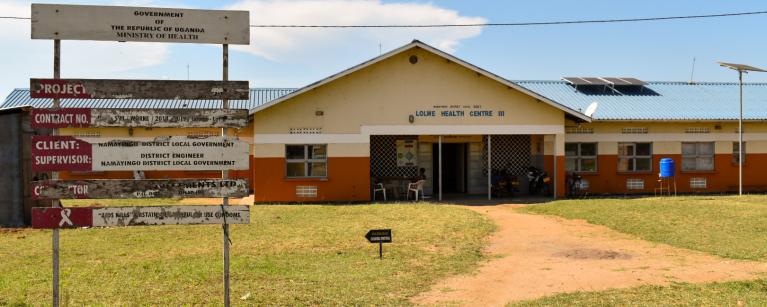For the past 23 years, Stephen Bogere has been in charge of Lolwe Health Centre (H/C3) III on Lolwe Island in Namayingo District.
Lolwe H/C3 offers health services such as general medical services, family planning, antenatal care, immunization, and laboratory testing.
The recent initiatives by Oxfam and partners have significantly improved the quality of services has particularly in the areas of sexual and reproductive health and rights (SRHR)
Under the Stand Up Project, Reproductive Health Uganda works with the health workers in the project implementing locations to strengthen their skills in health care service delivery.
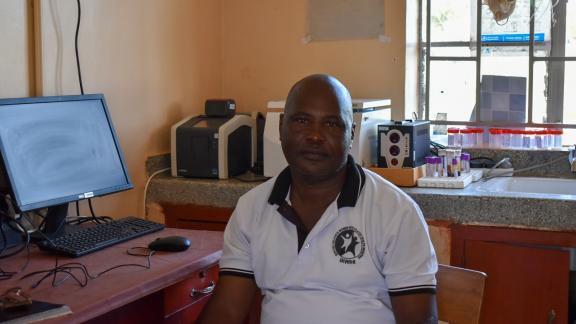
Stephen Bogere, the in-charge of Lolwe Health Centre (H/C3) III on Lolwe Island in Namayingo District
With funding from Global Affairs Canada (GAC), Oxfam, CEHURD, Femme Forte Uganda, and Reproductive Health Uganda and School of Public Health – Makerere University are implementing six and a half years Stand-Up for SRHR project in Eastern Uganda and West Nile.
At Lolwe H/C3, Stephen shares that the health workers were providing professional services, without following up with the patients.
For instance, for family planning services, Stephen says that the health centre now offers integrated family planning services, which include family planning counselling, post-abortion care, and follow-up visits. If a patient misses an appointment, the health team follows up and refers them to the necessary services. This has enhanced a relationship of trust between healthcare providers and the community.
“Our interaction with the patients ended with handing out contraceptives. We did not provide counselling, guidance, or follow-up appointments. We now give them appointments, and when the patients don’t return, we follow up and sometimes refer them to other services ”
Previously, youth in the community were hesitant to seek family planning services, partly due to myths and stigma. However, with the support and additional training, health workers have transformed their approach to providing youth-friendly SRH services
One of the notable improvements is the increased uptake of family planning services, including long-acting reversible methods (LARC). Initially, patients struggled to maintain long-term contraceptive methods, often returning to the facility for removal because they were not well prepared, informed and counselled by the health care givers on the side effects, use and effectiveness.
"Many women used to ask for implants which is for three years to be removed within two years because we had not properly counselled them, but now, with better guidance, they understand the methods and adhere to their plans." Stephen shares.
The most popular methods among young women are short-term injectables, which is administered every three months, and long-acting reversible methods such as implants, lasting three years.
More so, Stephen adds that the health centre has experienced an increase in the number of people seeking family planning services.
“We served about 30 to 40 clients a month. But by August, we were seeing between 120 and 150 people”
The majority of these clients are young adults between 19 and 30 years old. In addition to contraceptives, male youth frequently access condoms, attributed to a growing awareness of the importance of safe sexual practices.
The peer educators have played a pivotal role in sensitising communities about the availability of the SHR services at the Health Centre.
Trained by CEHURD (Center for Health, Human Rights, and Development), the peer educators educate their peers/change agents and communities on SRHR, while correcting the myths about contraceptives.
For example, Joan Tumuheirwe, a 26-year-old bar operator in Gorofa village, learned about the availability of free contraceptives at the health center through Prossy Komugisha, a peer educator.
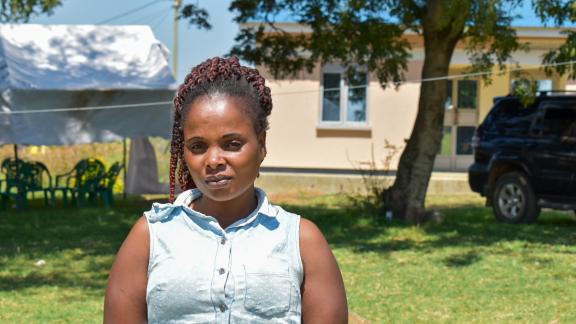
Joan Tumuheirwe (26) from Gorofa village learned about the availability of free contraceptive services at the Lolwe health centre through Prossy Komugisha, a peer educator
Joan shares, "in Gorofa, (a neighbouring trading center) we were charged UGX5,000 for family planning services, which many youths couldn’t afford. But at Lolwe health centre, I got the same services for free."
Stephen acknowledges the effectiveness of peer educators in convincing youth to access SRHR services and manage their reproductive health responsibly.
’It's easy for them to share their experiences and challenges in family planning, abortion, post-abortion care, and when they have the right information, they guide their peers to access safe services instead of relying on harmful traditional methods,’ Stephen notes.
"Before, the SRHR issues were surrounded by stigma, especially topics like safe abortion and contraceptives. But with increased awareness and accessible services, more people are comfortable seeking help," Stephen reflects.
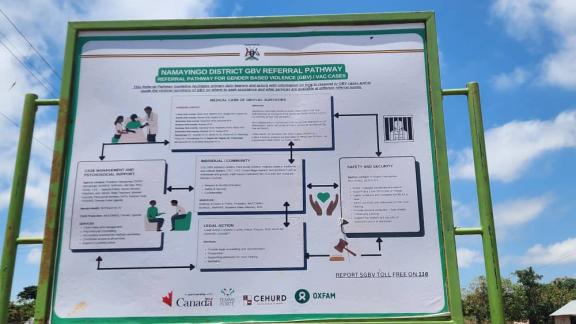
A post showing referral pathways at Lolwe Health Centre III in Namayingo District
Beyond SRH services, peer educators also refer patients for other medical needs, contributing to the overall well-being of the community. Stephen credits the peer educators for identifying individuals in need early, which helps prevent severe illnesses and reduces the burden on the health facility.
"We no longer have a sick community waiting to fall ill before seeking treatment. People are now proactive in accessing healthcare," he says.
Despite the progress, the team has faced backlashes, particularly in engaging cultural and religious leaders, who sometimes oppose SRHR initiatives.
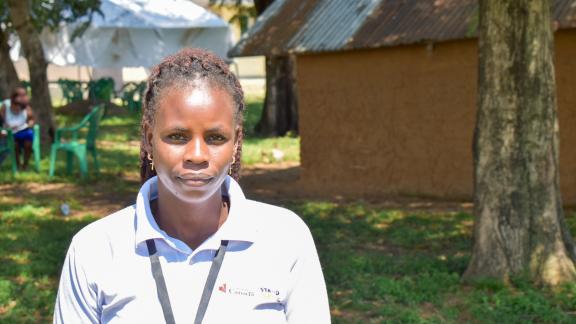
Prossy Komugisha, a peer educator in Lolwe, Namayingo District
Through the partners, Oxfam has been working with local leaders and cultural leaders to challenge harmful social-cultural practices and norms. In Namayingo district, CEHURD, Oxfam’s implementing partner with legal expertise, held meetings with local leaders and engaged with both the Busoga cultural and district leadership.
These efforts led to the district council committing to regulating Disco Matanga through an ordinance. Disco Matanga is a cultural practice used to fundraise for a dignified send-off of the deceased which attracts different community members together and collects funds. During this exercise conducted at night, people dance and drink alcohol and engage in sexual activities, which expose them, especially women and girls, to sexual abuse and exploitation.
The improvements at Lolwe H/C demonstrate how community engagement, proper training, and awareness campaigns can transform healthcare delivery, especially in remote areas like Lolwe Island.
The Stand-Up for SRHR project addresses key gender inequality and human rights issues, particularly harmful social norms, traditional harmful practices, and taboos regarding gender and sexuality; lack of adequate information on or access to comprehensive SRHR services; and lack of meaningful decision-making power by young women and girls regarding their health and sexuality. This project is implemented in Uganda, Mozambique, and Canada.
